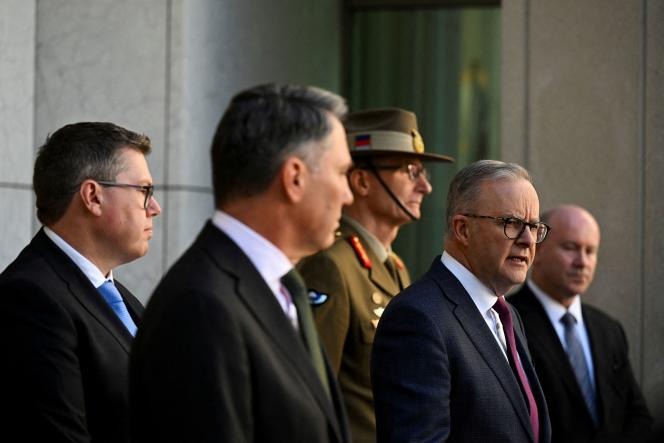
Recently, the Australian Parliament passed a legislation aimed at preventing Russia from constructing a new embassy near Parliament House. The decision was made due to concerns over espionage threats and political interference, amid increasing tensions between Moscow and a major supporter of Ukraine in the war effort.
Prime Minister Anthony Albanese stated that the legislation was based on advice from security agencies and would terminate Russia’s lease on the site intended for a second embassy. Albanese emphasized that the government had received clear security advice regarding the risks associated with a new Russian presence in close proximity to Parliament House. The intention is to prevent the lease site from becoming an official diplomatic presence.
Albanese further condemned Russia by saying, “The government has received very clear security advice as to the risk presented by a new Russian presence so close to Parliament House”. “We are acting quickly to ensure the lease site does not become a formal diplomatic presence.” Albanese said Australia’s government also condemns Russia’s “illegal and immoral invasion of Ukraine.”
Australia has been actively providing military hardware, training, and aid to Ukraine, positioning itself as one of the most supportive countries outside of NATO. The country has also escalated sanctions against Russia since the war began in February 2022.
Australia’s growing hostility towards Russia became evident last year when Australian officials demanded accountability from Moscow for suspected Russian cybercriminals who hacked into the country’s largest health insurer, Medibank, and exposed customers’ personal medical records on the dark web. It is uncommon for Australia to explicitly attribute blame to a specific country for an unsolved cybercrime.
Albanese informed opposition lawmakers and non-governmental legislators on Wednesday night about the legislation, and they agreed to pass it through both chambers on Thursday. Although the government holds a majority in the House, it does not have the same majority in the Senate.
Remarkably, within a span of three hours after Albanese’s public announcement, the bill became law, first passing in the House and then in the Senate. The law is anticipated to take effect later on Thursday when it receives formal approval from Governor-General David Hurley, who represents Australia’s head of state, King Charles III.
During her address to Parliament, Home Affairs Minister Clare O’Neil provided more specific details about the Russian threat. She emphasized that the “scope for espionage and foreign interference from the site would have been a substantial risk for the nation.”
O’Neil stated,“The action is direct and decisive. We do not have any interest in sugarcoating this message”. She made it clear, “We will not stand for espionage and foreign interference in our country. We will act in the face of danger to our democracy and our citizens and we will do so without any apology to anyone.”
Opposition leader Peter Dutton expressed unity among Parliament members in response to the Russian threat. He stated “We won’t tolerate foreign espionage conducted in a way that is against our national interest. We won’t tolerate people seeking to interfere with electoral processes in our country”.
When asked about potential security concerns regarding the Chinese Embassy located across the street from the Russian site, Albanese did not provide a direct answer. He stated, “We’re dealing with this very specifically, and it’s based upon very specific advice as well about the nature of the construction that’s proposed for this site, about the location of this site, and about the capability that would present in terms of potential interference with activity that occurs in this Parliament House.”
The Russian Embassy stated that it would provide a comment later on Thursday.
The Australian government took action after Russia won a Federal Court case last month, which prevented their eviction from the site that is currently under construction. The 99-year lease, granted to Russia in 2008 in the diplomatic precinct of Yarralumla, was canceled by local Canberra authorities due to a lack of construction activity. Although plans for the complex of buildings were approved in 2011, only a small perimeter building has been constructed despite the agreed-upon completion deadline of three years. Russia claims to have already spent $5.5 million on the site.
The National Capital Authority, responsible for embassy leases, decided to terminate the Russian lease citing the “ongoing unfinished works detract from the overall aesthetic, importance and dignity of the area reserved for diplomatic missions.”
Currently, Russia occupies the former USSR embassy in the suburb of Griffith, which is farther from Parliament House compared to the new site. The Yarralumla site would have provided Russia with two clusters of buildings. Albanese clarified that the Russian Embassy would remain in Griffith, while Australia’s Embassy would remain in Moscow.
O’Neil stated that no embassy would be allowed on the site, emphasizing that “The principal problem with the proposed second Russian Embassy in Canberra is its location. This location sits directly adjacent to Parliament House.”




